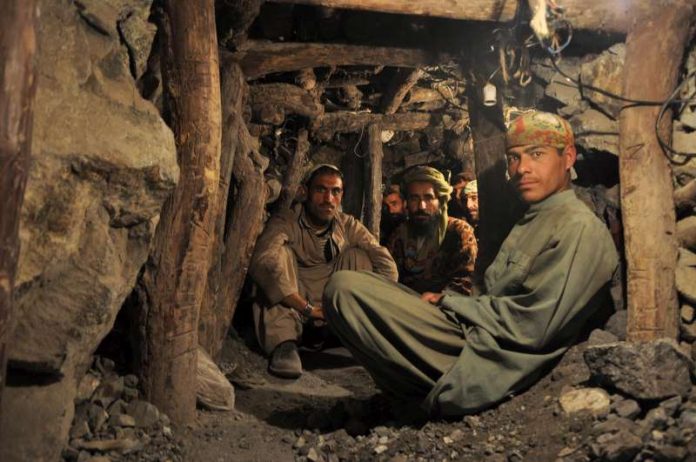At least four miners have lost their lives due to poisoning from methane gases in a coal mine in Sinjidi, near Quetta.
The incident that happened on Friday morning resulted in six miners getting trapped inside the mine. At least four miners were killed due to the poisonous gases. Two other received injuries and are being treated in a hospital, The Balochistan Post’s correspondent reported.
Coalmines in Balochistan are some of the most dangerous workplaces in the world as frequent accident kill large number of workers. Coalmines, majority of which are directly or indirectly operated by state-owned Pakistan Mineral Development Corporation (PMDC) and Pakistani Petroleum Limited, have non-existent health and safety policies and measures.
In Balochistan, the underground mining is carried out mostly with Room and Pillar method of extraction which is the oldest and most dangerous method. This mining technique has been rejected all over the world.
More than 150 gas explosions and incidents have taken place inside coal mines of the province during last ten years. Hundreds of workers have lost their lives inside the mines.
The worst such accident was in March 2011, when a methane gas explosion in a coal mine near Mach, Balochistan killed at least 52 miners. The situation was further worsened due to unavailability of appropriate rescue machinery and the rescuers had to use shovel and bare hands to dig out miners.
Many international organisations working for worker rights have strongly condemned Pakistan for the complete absence of an effective occupational health and safety policy in the country, which has resulted in the deaths of a large number of workers in industries, particularly in coal mines.
IndustriAll, an international union that represents 50 million workers in 140 countries in the mining, energy and manufacturing sectors and campaigns for better working conditions had issued a strong statement when two similar accidents killed 7 workers in May in Balochistan.
Glenn Mpufane, IndustriALL director for mining had said:
“We are pained to note that mineworkers in Pakistan continue to lose their lives at work. We strongly condemn the negligence and lack of action by the authorities to improve safety in the mining sector. We call upon the government of Pakistan to immediately ratify International Labour Organisation (ILO) Convention 176 on Health and Safety in Mines and implement the ILO Code of Practice on Safety and Health in Underground Coal Mines.”
However, despite international condemnation the working conditions have failed to improve. The weak or non-existent unions have been unsuccessful in compelling the mine owners to improve conditions due to majority of workers being too poor to go on strikes. Miners are forced to work for ten to twelve hours a day. The whole situation has turned the laborers into modern slaves who live in miserable conditions even after the working hours.
Most of the miners carry Tuberculosis and other disease due to continously being exposed to poisonous gases present deep inside the mines.
There is no mechanism or facilities to treat the affected miners. “They do not even provide first aid and you are asking about treatment facilities for Tuberculosis,” a labor leader responded to TBP Correspondent when asked about facilities available to miners.
Researchers and campaigners have continuously stressed at the need of implementing latest techniques and provision of personal safety and mine safety equipment like dust mask, goggles, oxygen cylinders and gas concentration detection appliances.
































